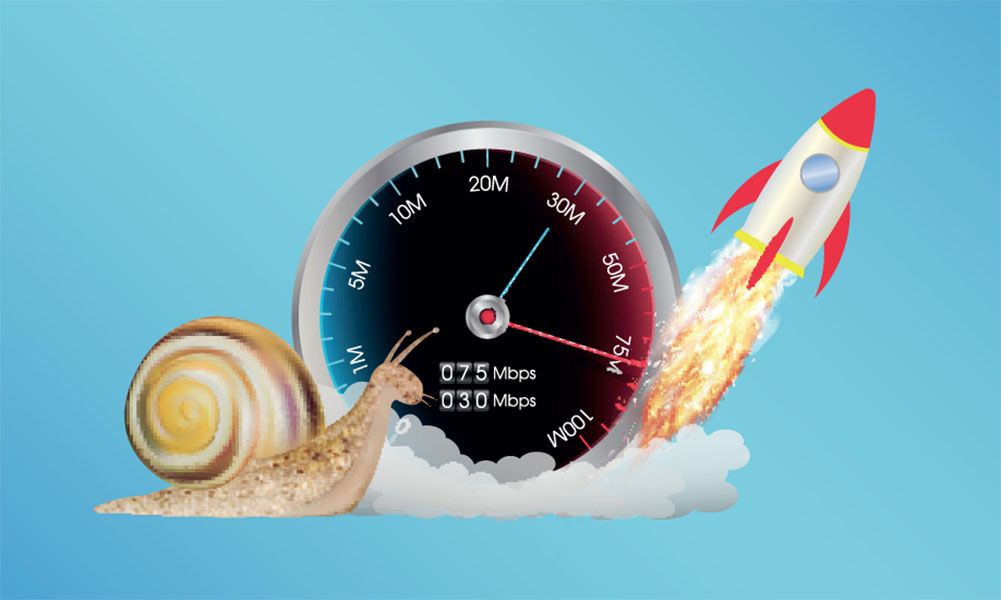We frequently receive inquiries about the causes of slow broadband speeds. Therefore, without any ranking order, we have compiled a list of the top 10 reasons why your home or business might be experiencing slow broadband speeds.
Faults At The Telephone Exchange
There may be an issue with the equipment or wiring in the local telephone exchange or street cabinet, which can cause slow broadband speeds.
Telephone Line Faults
If the telephone line that provides the phone and internet connection to the home is damaged or has a fault, it can lead to slow broadband speeds.
Your Home’s Distance To The Local Telephone Exchange
The further a home is located from the local telephone exchange, the slower the broadband speed is likely to be, especially if the broadband is supplied over a traditional copper phone line.
Interference On Telephone Extension Leads
If the broadband router is not plugged directly into the main phone socket in the home, interference on the telephone extension leads can lead to slower broadband speeds.
Damaged Microfilters
Microfilters can help reduce interference and increase broadband speeds, but if they are damaged or have a fault, it can lead to slow broadband speeds.
Traffic Management Policies
Some broadband providers reduce broadband speeds at peak times of the day, referred to as “Traffic Management Policy,” which can cause slow broadband speeds.
Multiple Users
When many people in a home are using the internet at the same time, especially during peak times, it can cause slow broadband speeds.
Older Routers
Older routers or those with known problems can cause slower broadband speeds and regular disconnections.
The Location Of Your Router
Electrical equipment, such as televisions, cordless phones, stereo speakers, halogen lamps, and Christmas lighting, can cause electrical interference with the router and thus cause speed problems.
Your PC, Laptop, Browser, TV, Or Game Console
A problem with the device, such as an older web browser or apps running in the background, can cause the device to run slower than usual and affect broadband speeds. On-demand TV services and game consoles may also be downloading content or updates, which can affect broadband speeds.

